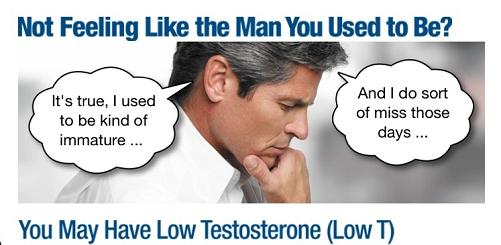An overabundance of testosterone in the fetal environment has been identified as a source of potential harm. This overabundance, or extreme male brain, has been imagined to account for a number of behavioral, emotional, and cognitive disorders. Yet, at the other end of the life spectrum, too little testosterone has also been viewed as problematic.
Not surprisingly, things change as men age. Our production of testosterone is no different. Testosterone production normally reduces beginning sometime in our 30s or 40s. However, unlike women who see a sharp drop in estrogen at menopause, men’s reduction of testosterone is much more gradual.
Aging, in general, is often associated with decreases in muscle mass, bone density, sexual interest and stamina, cognitive performance, and emotional well-being. Testosterone is thought to play an important role in all of these factors. (Of course, diet, exercise, and watching the booze also plays an important role. But let’s not split hairs.)
So, what’s a fella to do?
According to those in pharmaceutical companies that manufacture and promote synthetic testosterone — if you ain’t a fetus, you need a testosterone boost.
Testosterone replacement is big business in both its cutaneous and subcutaneous forms. Sales of pharmaceutical testosterone currently exceed 1.5 billion dollars (USD) per year and are projected to rise to 5 billion dollars yearly over the next five years. Testosterone replacement therapy is growing.
Not that pharmaceutical companies are saying that low testosterone causes aging or that testosterone replacement therapy reverses aging. That would be irresponsible. They do, however, imply this in their media campaign and direct-to-consumer advertising.
But that is not irresponsible, that is just marketing.
Completely acceptable.


You must be logged in to post a comment.